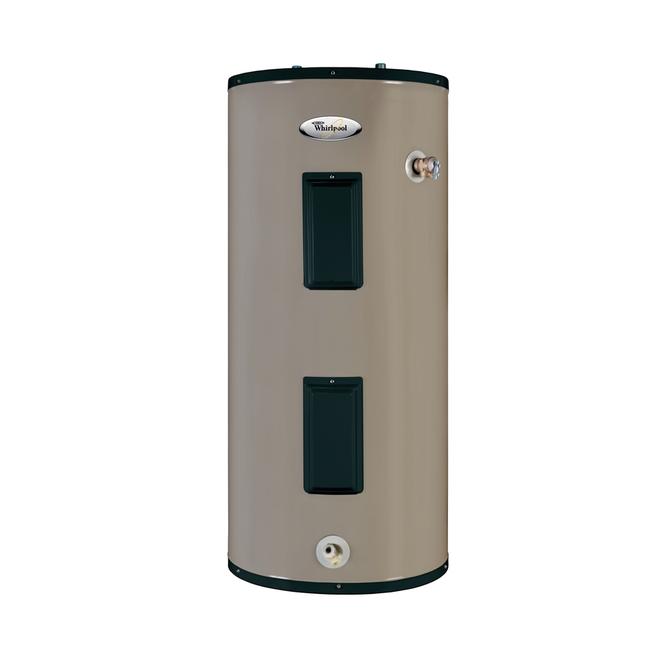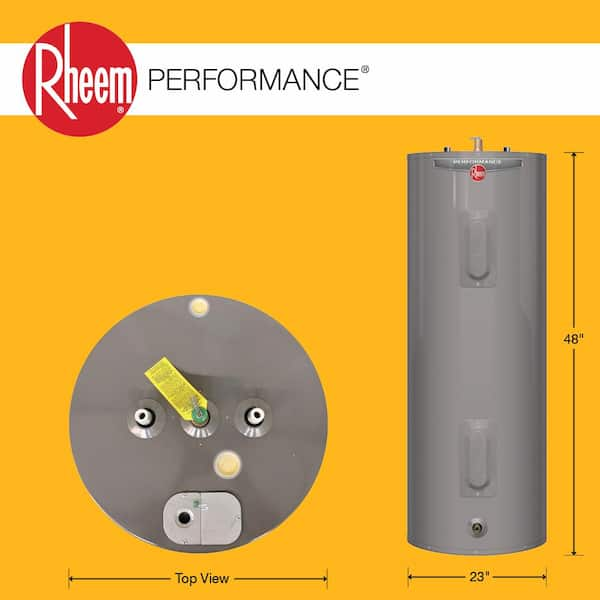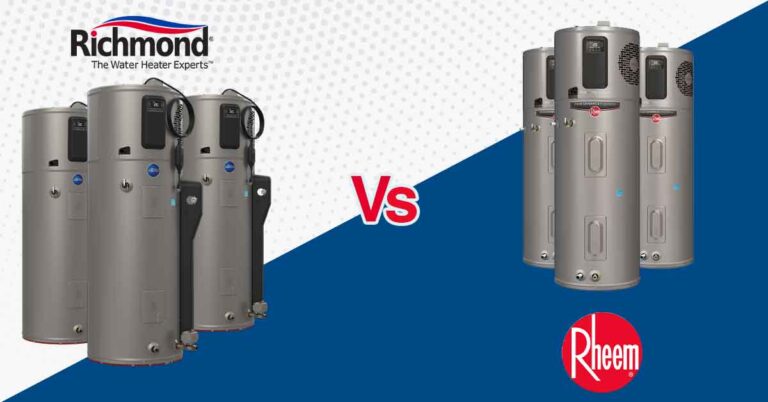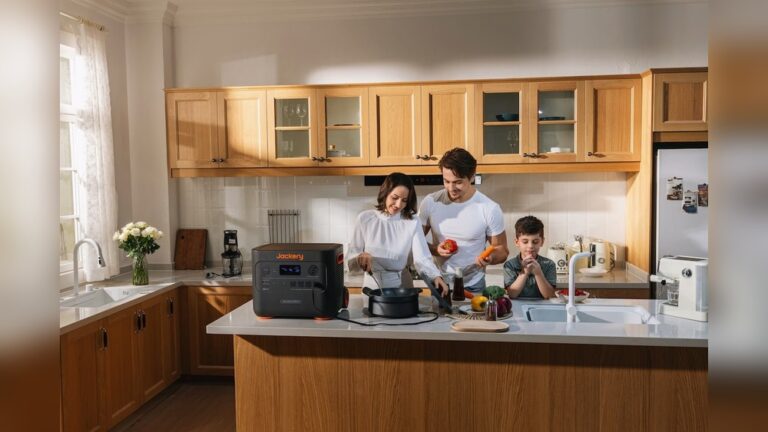Choosing the right water heater can make a big difference in your daily comfort and energy bills. You might be wondering whether a 4500-watt or a 5500-watt water heater is the better choice for your home.
This decision can impact how quickly you get hot water, how much energy you use, and even your monthly expenses. Before you make a purchase, it’s crucial to understand the differences between these two options. We’ll break down the benefits and drawbacks of each, helping you make an informed decision that suits your lifestyle and budget.
Stay with us as we dive into the details that matter most to you and your home.
Understanding Water Heater Wattage
Understanding water heater wattage is crucial if you’re aiming to maximize efficiency and reduce energy costs. You might wonder why wattage matters when choosing between a 4500 watt and a 5500 watt water heater. It’s not just about power; it influences how quickly your water heats up and how much energy you consume. Let’s dive into the importance of wattage and its impact on heating efficiency.
Importance Of Wattage In Water Heaters
Wattage determines how much power your water heater uses to heat water. A higher wattage generally means faster heating times. Imagine coming home after a long day, eager to take a hot shower. A 5500 watt water heater would heat the water quicker than a 4500 watt heater, ensuring you don’t have to wait long.
However, faster heating comes with a catch. Higher wattage means more energy consumption. This can lead to increased electricity bills. So, while a 5500 watt heater gets the job done quickly, a 4500 watt unit might be more economical in the long run.
Consider your needs. If you live in a household with high water demand, a 5500 watt heater might be a better fit. But if you’re looking to cut costs, the 4500 watt option could be more suitable.
Impact On Heating Efficiency
Efficiency is key when it comes to water heaters. A 5500 watt heater is more efficient in heating water quickly. This is especially useful during peak usage times, like mornings when everyone is getting ready for work or school.
But efficiency isn’t just about speed. It’s also about how well the heater maintains temperature. A higher wattage heater may keep water hot longer, reducing the need for frequent reheating. This can be a lifesaver in busy households.
Yet, efficiency must be balanced with cost. A 4500 watt heater might take a bit longer to heat the water but can be more cost-effective, especially if your water heating needs are moderate. Consider your lifestyle and water usage patterns to make the best choice.
As you weigh your options, ask yourself: Do you prioritize speed or savings? What’s more important in your daily routine? These questions can guide you to the water heater that best meets your needs.

Credit: www.protclear.com.br
4500 Watt Water Heater
Choosing between a 4500 and 5500 watt water heater depends on energy needs and efficiency. A 4500 watt heater uses less electricity, making it more economical. The 5500 watt option heats water faster, ideal for larger households. Understanding your home’s requirements helps in making the right choice.
Choosing the right water heater for your home can be a daunting task. One popular choice among homeowners is the 4500 Watt Water Heater. It is known for its balance of efficiency and performance, making it a reliable option for many families. Whether you’re replacing an old unit or installing a new one, understanding the specifics of a 4500 watt model can help you make a wise decision.Performance And Efficiency
The 4500 Watt Water Heater offers steady performance for small to medium-sized households. It heats water efficiently, ensuring a consistent supply for your daily needs. Many users find that it provides ample hot water for showers, dishwashing, and laundry without noticeable delays. Its performance is often sufficient for households that do not require simultaneous use of multiple hot water sources. This makes it a suitable choice for those who value efficiency over sheer power. Imagine running a warm shower while the dishwasher is on—you’ll find that the 4500 watt model handles such tasks with ease.Energy Consumption And Cost
Energy consumption is a key factor when selecting a water heater. The 4500 Watt Water Heater is designed to balance energy use with effective performance. It typically consumes less electricity than higher wattage models, which can result in lower utility bills over time. Consider this: by opting for a 4500 watt model, you can maintain a warm water supply without spiking your energy costs. This is particularly beneficial if you are conscious about your household’s carbon footprint. Have you ever wondered how much you could save by switching to a more energy-efficient model? With a 4500 watt unit, you might notice a significant drop in your monthly expenses, allowing you to allocate those savings elsewhere.Ideal Scenarios For Use
A 4500 Watt Water Heater is ideal for homes with moderate hot water demands. It is perfect for families with up to four members who typically stagger their hot water usage. If you’re living in a compact apartment or a small house, this model can efficiently meet your needs. Are you someone who enjoys a long, relaxing shower without worrying about running out of hot water? This model can support such habits while ensuring that other household members still have enough hot water for their tasks. If you’re considering upgrading or replacing your current water heater, ask yourself: does your home require high-capacity heating? If not, a 4500 watt unit may be the optimal choice. It provides a perfect blend of performance, energy efficiency, and cost-effectiveness for a wide range of residential settings.5500 Watt Water Heater
Choosing between 4500 and 5500 Watt water heaters can impact efficiency and performance. A 5500 Watt water heater heats water faster, saving time. Ideal for larger households or high-demand situations.
When considering a water heater upgrade, a 5500 Watt model presents a compelling choice for those seeking efficient heating and versatility. This powerhouse not only promises faster heating times but also comes with features that might align better with your home’s needs. Whether you’re a busy family or someone who enjoys long showers, understanding the benefits of a 5500 Watt water heater could transform your daily routine.Enhanced Heating Capabilities
A 5500 Watt water heater boasts superior heating capabilities, providing hot water more quickly compared to lower wattage models. Imagine jumping into a hot shower after a long day without waiting for the water to heat up. This model can sustain high temperatures for longer periods, making it ideal for larger households. Picture your home bustling with activity, each family member relying on hot water—this heater can handle the demand with ease. The enhanced power means you can expect consistent hot water, even during peak usage times. No more waiting for the water to warm up or dealing with lukewarm baths. The 5500 Watt heater ensures everyone gets their fair share of comfort.Energy Usage And Expense
While the 5500 Watt water heater is more powerful, it does come with increased energy consumption. However, the efficiency it provides might balance out the expense. Consider the convenience of quicker heating—less wait time often means less wasted energy. If you’re mindful of usage patterns, you can effectively manage costs by timing showers or laundry. Have you ever thought about your energy bill? With a 5500 Watt model, it’s crucial to weigh the benefits against the potential increase in electricity usage. Smart thermostats and timers can help mitigate expenses and keep your costs predictable.Best Use Cases
A 5500 Watt water heater shines in scenarios where high demand for hot water is frequent. Large families or households with multiple bathrooms benefit greatly. Think of the morning rush, everyone vying for a hot shower—this heater ensures no one has to compromise. It’s also perfect for homes with luxury bathrooms featuring large bathtubs or multi-head showers. Are you someone who loves long, relaxing baths? This heater can maintain the temperature effortlessly, providing uninterrupted comfort. It’s a reliable choice for anyone who prioritizes convenience and efficiency in their daily routines. In the end, choosing a 5500 Watt water heater comes down to your specific needs and lifestyle. If hot water is a constant demand in your household, this model offers a solution that combines power and practicality.Comparative Analysis
In choosing a water heater, understanding wattage differences is crucial. A 4500-watt and a 5500-watt heater serve similar purposes but have key differences. This comparative analysis helps you decide which suits your home best.
Heating Speed And Efficiency
The wattage of a water heater affects its heating speed. A 5500-watt heater heats water faster than a 4500-watt heater. This means less waiting for hot water. Higher wattage often means higher efficiency. It can maintain hot water temperatures with less effort. Efficiency impacts how well the heater uses energy over time.
Energy Cost Implications
Energy cost is a major consideration. A 4500-watt heater uses less electricity per hour. This can result in lower energy bills compared to a 5500-watt heater. But, faster heating with a 5500-watt heater might offset this. It heats water quickly, reducing run time. Balancing heating needs and energy use is important.
Suitability For Different Household Needs
Household size influences water heater choice. Smaller homes may benefit from a 4500-watt heater. It provides adequate hot water without high energy costs. Larger households or those with high hot water demand may prefer a 5500-watt heater. It delivers hot water quickly, meeting higher needs. Consider family size and hot water usage patterns.
Factors To Consider
Choosing between a 4500 and 5500 watt water heater depends on energy efficiency and heating speed. Higher wattage heaters warm water faster but consume more electricity. Consider household size, usage patterns, and budget to find the right balance between performance and cost.
When choosing between a 4500-watt and a 5500-watt water heater, various factors need your attention. Understanding these can lead you to the right decision for your home and family. While efficiency and upfront costs are important, it’s crucial to consider long-term savings and environmental impact. Let’s dive into what you need to think about before making that purchase.Household Size And Hot Water Demand
Your household size significantly influences your hot water needs. A family of four will naturally use more hot water than a couple or a single person. Think about the number of showers, loads of laundry, and dishwashing sessions happening daily. A 5500-watt water heater can heat water faster, which might be beneficial for larger families. But if your household is smaller, a 4500-watt model might suffice, saving energy and costs.Initial Cost Vs Long-term Savings
Initial cost is often the first thing you notice when shopping for water heaters. Generally, 4500-watt models are less expensive upfront than their 5500-watt counterparts. However, consider the long-term savings. A more efficient 5500-watt heater may have lower operating costs, saving you money over time. Weigh the upfront cost against the potential savings on your energy bills. Think about how long you plan to stay in your current home. If it’s for a while, investing in long-term savings might be worthwhile.Environmental Impact
Environmental considerations are becoming more critical in our purchase decisions. A 5500-watt water heater heats water faster, potentially using less energy overall. This can be more environmentally friendly, reducing your carbon footprint. However, if your household uses less water, a 4500-watt model could be more efficient. Consider your personal values and environmental goals. Do you prioritize immediate cost savings, or is reducing your environmental impact more important? Making the right choice requires balancing these factors. What works for one home might not suit another. Think about your priorities and circumstances to make an informed decision.
Credit: www.homedepot.com
Making The Decision
Choosing the right water heater can feel overwhelming. The decision between a 4500 Watt and a 5500 Watt water heater depends on various factors. Evaluating your needs can simplify this process. Consider what works best for your home and lifestyle.
Assessing Your Needs
First, think about your daily water usage. Larger families often need more hot water. A 5500 Watt heater might meet these demands better. Smaller households might manage well with a 4500 Watt heater. Consider how fast you need hot water. A higher wattage heater heats water quicker. If time matters, this could be important.
Budget Considerations
Budget plays a crucial role in decision-making. A 4500 Watt heater is usually cheaper upfront. It may also have lower energy costs. The 5500 Watt heater may cost more initially. Its efficiency can lead to savings over time. Weigh the upfront cost against potential long-term savings.
Future-proofing Your Choice
Think about future needs. Will your family grow? Plan for increased water usage. A 5500 Watt heater may accommodate future changes better. Consider energy efficiency. Newer models offer improved technology. This can lead to savings and less environmental impact.

Credit: www.protclear.com.br
Frequently Asked Questions
What Are The Main Differences Between 4500 And 5500 Watt Heaters?
The primary difference lies in the heating efficiency and energy consumption. A 5500-watt heater heats water faster, ideal for larger households. However, it consumes more electricity. A 4500-watt heater is more energy-efficient but slower, suitable for smaller homes or lower water usage.
Which Heater Is More Energy-efficient?
A 4500-watt water heater is generally more energy-efficient compared to a 5500-watt model. It consumes less electricity over time, making it ideal for smaller households or those aiming to reduce energy bills. A 5500-watt heater, while faster, uses more power, impacting energy efficiency.
How Does Heating Speed Differ Between Them?
A 5500-watt water heater heats water faster than a 4500-watt model. This is due to its higher power capacity. The 4500-watt heater takes longer to reach desired temperatures, making it suitable for homes with moderate hot water needs.
Are Both Heaters Suitable For Large Families?
A 5500-watt heater is better for large families due to its quicker heating. It efficiently meets high hot water demands. In contrast, a 4500-watt heater may struggle with large volumes, potentially leading to longer wait times for hot water.
Conclusion
Choosing between a 4500 and 5500 watt water heater depends on your needs. Consider your household size and water usage. A 5500 watt heater heats water faster. It suits larger families or high demand. A 4500 watt model is energy-efficient.
Ideal for smaller households with less usage. Both options have their benefits. Evaluate your budget and energy bills. Think about installation space and water consumption. Make an informed decision for your home. Enjoy warm showers without stress.


